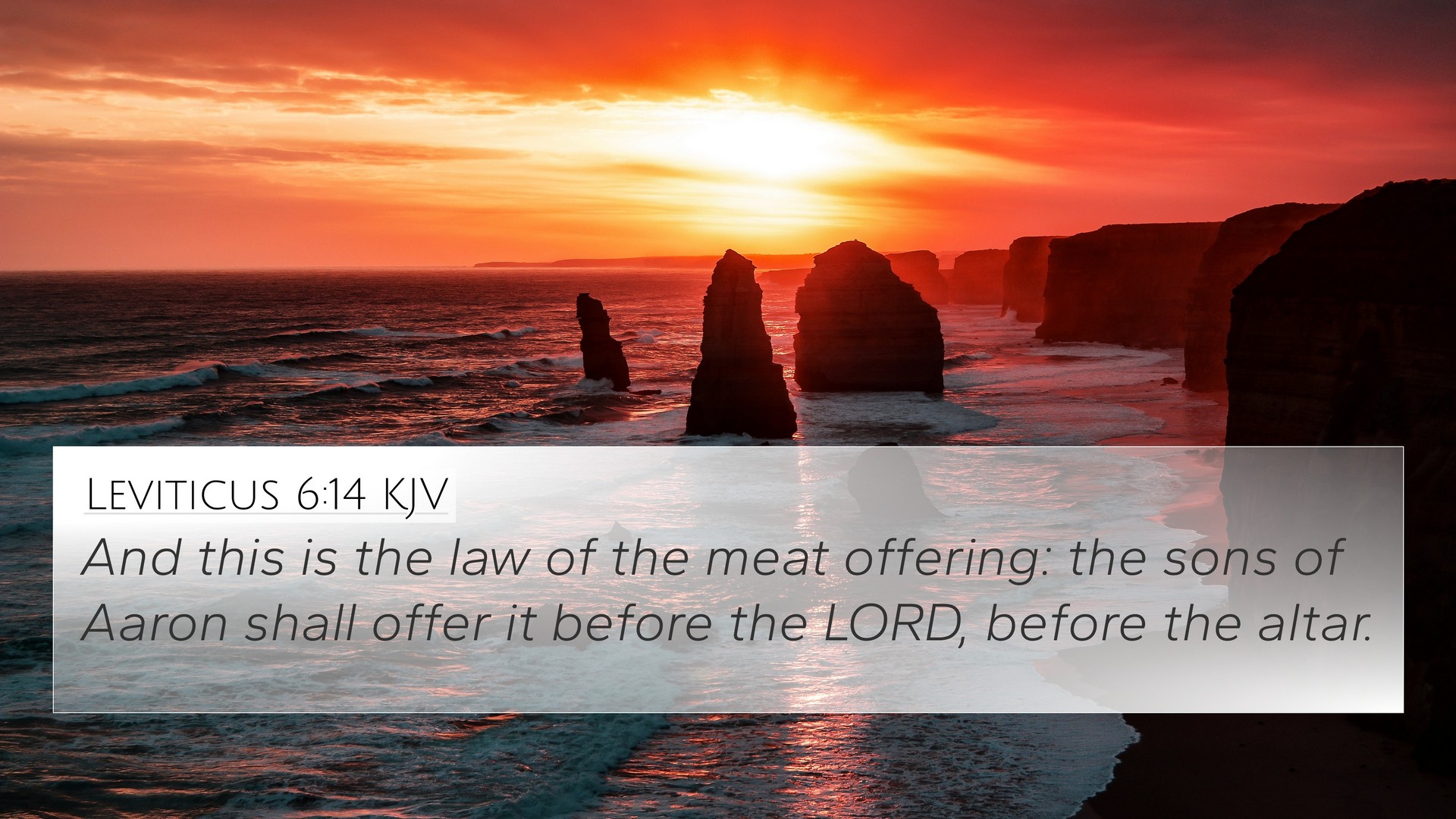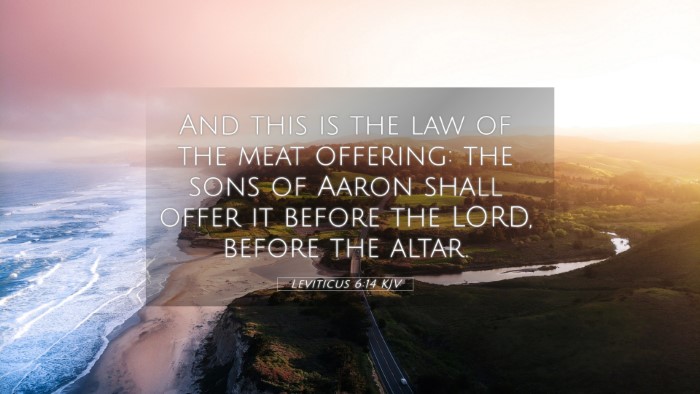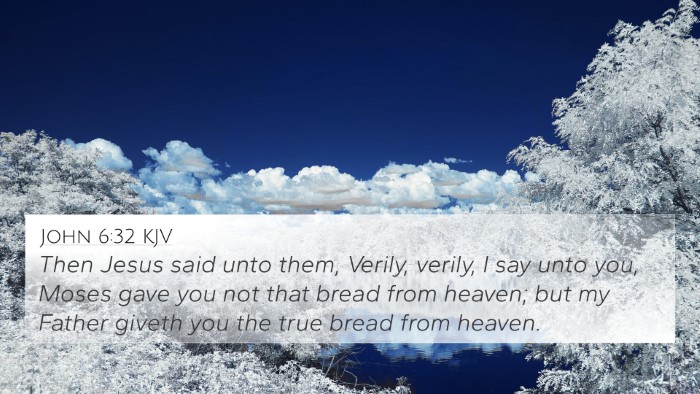Meaning and Interpretation of Leviticus 6:14
Leviticus 6:14 states:
"And this is the law of the meat offering: the sons of Aaron shall offer it before the Lord, before the altar."
This verse focuses on the laws governing the meat offering (or grain offering), which is an important aspect of the sacrificial system outlined in the Book of Leviticus. In this summary, we will explore the meaning of this verse by drawing insights from esteemed commentaries to provide a comprehensive understanding.
Overview of Context
Leviticus is a book that lays out various laws and regulations for the Israelites, particularly concerning offerings and sacrifices, which were essential for maintaining a right relationship with God.
Key Themes
- Sacrificial System: The verse emphasizes the importance of sacrificial offerings in the worship of God.
- Priestly Duties: It underscores the roles and responsibilities of the priests, specifically the sons of Aaron.
- Divine Instruction: This law reflects the Holy God's detailed instructions for how He wishes to be worshiped.
Commentary Insights
Matthew Henry’s Commentary
Matthew Henry notes that the meat offering was a most holy offering, which not only signifies the need for dedication and commitment to God but also illustrates the sustenance provided by God to His people. The act of offering before the altar signifies an offering made in the presence of God, which is central to their worship.
Albert Barnes’ Commentary
Albert Barnes emphasizes the specific command regarding the priests, particularly that the sons of Aaron were to offer the meat offering. This highlights the designated roles within the religious community and the importance of adhering to God’s prescribed order. He also points out that such offerings served as a means of expressing gratitude to God, acknowledging His provision.
Adam Clarke’s Commentary
Adam Clarke discusses the significance of the meat offering in drawing nearer to God. He observes that this type of offering was often about presenting oneself to God in dedication, emphasizing the heart's intention behind the action. Clarke also relates this practice to the New Testament concept of offerings, where believers are encouraged to present their bodies as living sacrifices (Romans 12:1).
Related Bible Cross-References
Leviticus 6:14 connects with several other Bible verses, providing a deeper understanding of its themes:
- Exodus 29:38-41 - Discusses the daily offerings that were to be made by the priests.
- Leviticus 2:1-16 - Details regarding the grain offerings, elaborating on the nature of the offerings described.
- Romans 12:1 - Encourages believers to present their bodies as living sacrifices in light of God’s mercy.
- Hebrews 5:1 - Lists the role of the priest in offering gifts and sacrifices for sins.
- 1 Peter 2:5 - Describes believers as living stones being built into a spiritual house, offering acceptable sacrifices to God.
- 2 Corinthians 9:7 - Advises believers to give as they have decided in their hearts, tying back to the heart of offering.
- John 4:24 - Highlights that true worshipers will worship the Father in spirit and truth, resonating with the spirit of Levitical offerings.
Thematic Connections
The offering system in Leviticus sets a precedent that influences many themes throughout Scripture:
- Worship and Sacrifice: The link between worship and the offering of sacrifices is a recurring theme.
- Divine Communication: God’s response to faithful offerings reflects His relational nature with humanity.
- Redemption and Atonement: Sacrificial laws foreshadow the ultimate sacrifice of Christ in the New Testament.
Conclusion
Leviticus 6:14, when studied alongside other Scripture, illustrates vital principles about worship, the role of the priesthood, and the heart's posture before God. The insights from various commentaries deepen the understanding of this verse, providing clarity on the responsibilities conveyed in the passage. Through cross-referencing and thematic analysis, readers gain comprehensive insight into how this verse serves not just as an isolated command but as part of a broader narrative of God's relationship and expectations for His people.







